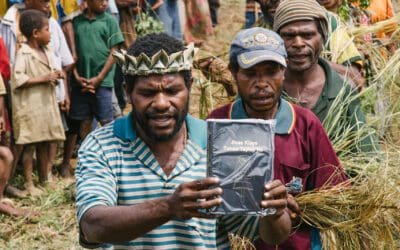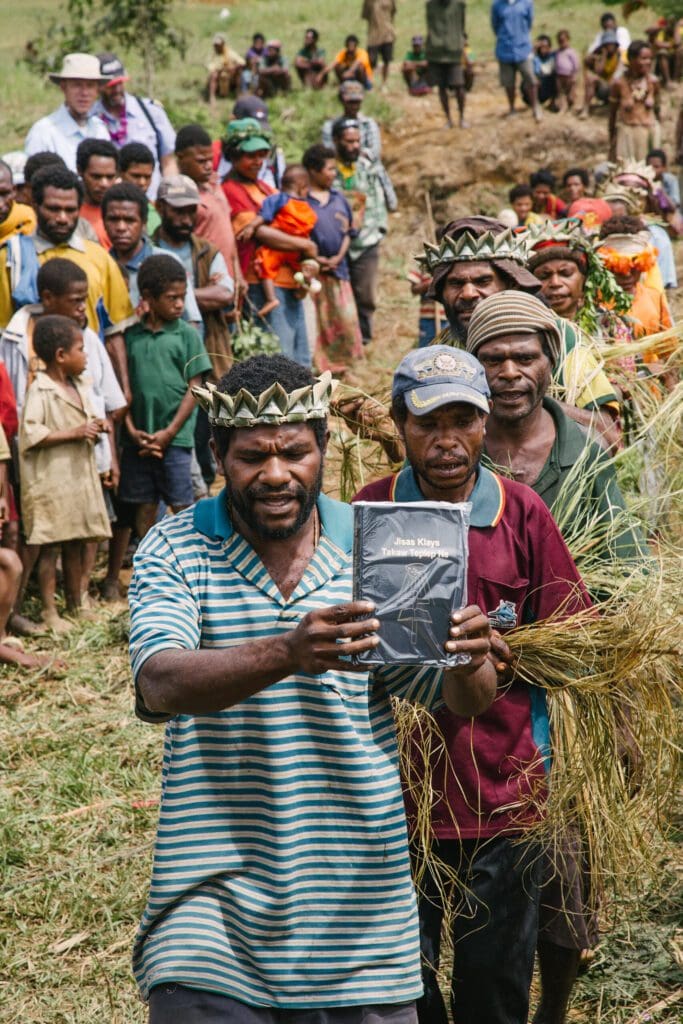“Where did this happen?”
“Near Bethlehem.”
“What kind of place is Bethlehem?”
“A small village.”
“What appeared in the sky?”
“An angel.”
Christmas was approaching, and the Apal people were about to hear Luke’s account of Jesus’ birth in their own language for the first time. Martha Wade sat in her living room with a group of Apal men who listened intently as she carefully read the text.
Then she began asking questions. She wasn’t testing how well they had listened. Rather, she needed to know if the words used in the translation communicated clearly and accurately. This step in the process, often called community comprehension checking, is one of many that help ensure the integrity of each translated text. It’s important for discovering places where word choices need to be reviewed because the current ones create misunderstandings.
Each question Martha posed from her written list was answered quickly, sometimes by multiple people speaking simultaneously. Martha listened carefully to the responses. So far so good. Everyone seemed to understand. The hard work she and the Apal translators had invested was paying off. The people in her home that evening — people with no prior knowledge of what they were supposed to be hearing and understanding — were getting a clear message.
As Martha shuffled from one page of notes to the next, a question not on her written list came to mind. She decided to ask it.
“Why were the shepherds watching the sheep?”
Dead silence. At last a hesitant voice offered, “Uh, they were planning to shoot them?”
Martha acknowledged this response, carefully avoiding any indication that it wasn’t at all what she’d expected. Then she continued making her way through the remaining questions.
The next day the translation team met to review the places where people’s answers showed a need for additional attention. When they came to the verse introducing the shepherds, the Apal men reminded Martha that their people don’t tend flocks or herds. They have pigs, but these freely roam the village and nearby jungle, receiving none of the watchful care that sheep require.
The people don’t have flocks or herds, so how could they know what a shepherd does?
The Apal are, instead, hunters. So they naturally heard “watching” a large, edible animal in light of why they themselves would be paying attention to one.
After Martha explained the work of shepherds, the team agreed that a wording change was needed. ”Watching” had a broad meaning that included both the intended one and the one that the Apal men had (reasonably, in light of their experience) understood. However, it could not be changed because Apal had no word for the shepherds’ specific action of “watching.” Instead, they clarified that the watching men were the sheep’s “papas,” responsible for their well-being rather than their demise.
That Christmas the Apal people heard about the birth of Jesus and the angelic announcement to “papas” who were watching — taking care of — their sheep. This wording gave hearers a more accurate picture of the shepherds’ work. It also helped prepare them to understand Jesus as their Good Shepherd, the One who takes care of them.











